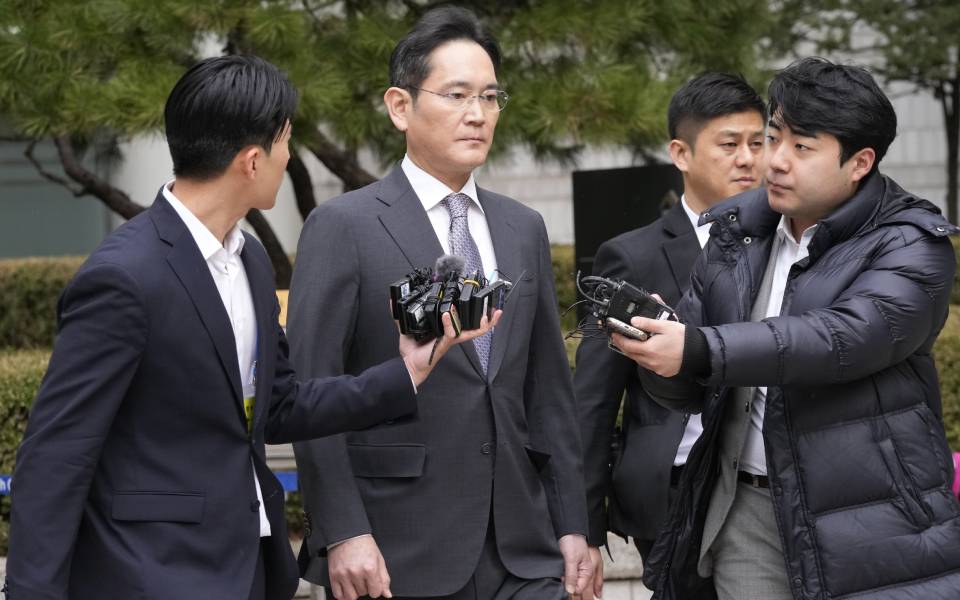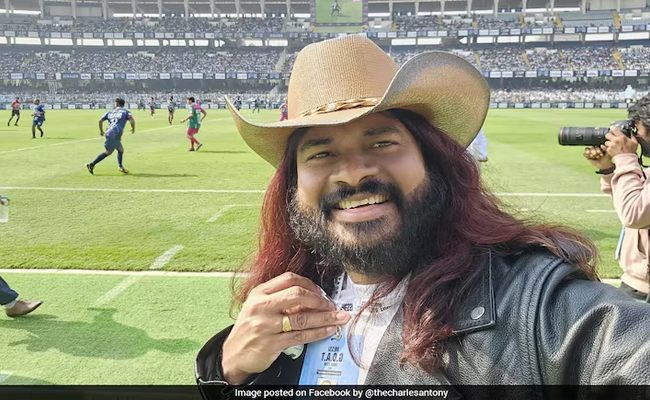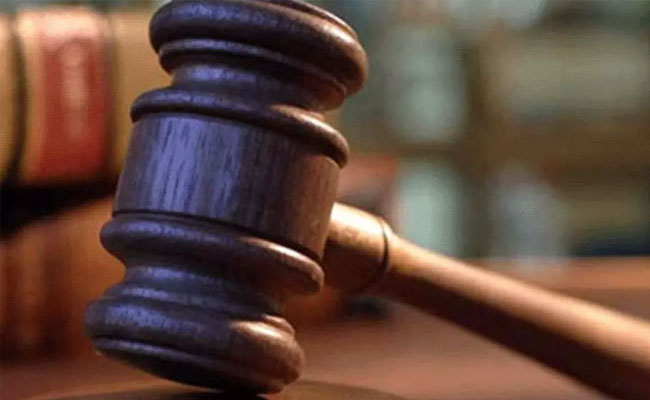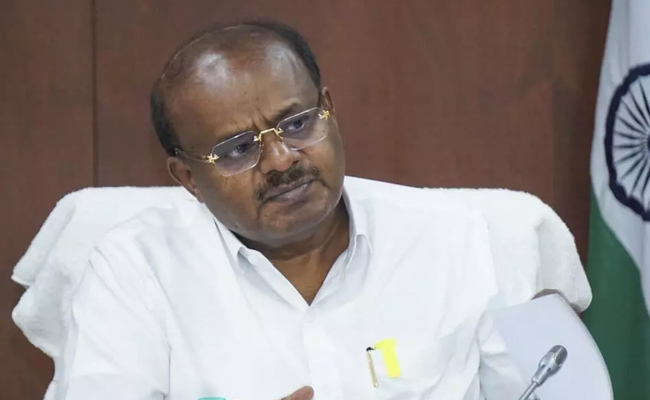Seoul, Feb 5: A South Korean court on Monday acquitted Samsung Electronics Chairman Lee Jae-yong of financial crimes involving a contentious merger between Samsung affiliates in 2015 that tightened his grip over South Korea's biggest company.
The ruling by the Seoul Central District Court could ease the legal troubles surrounding the Samsung heir less than two years after he was pardoned of a separate conviction of bribery in a corruption scandal that toppled a previous South Korean government.
The court said the prosecution failed to sufficiently prove the merger between Samsung C&T and Cheil Industries was unlawfully conducted with an aim to strengthen Lee's control over Samsung Electronics.
Prosecutors had sought a five-year jail term for Lee, who was accused of stock price manipulation and accounting fraud. It wasn't immediately clear whether they would appeal. Lee had denied wrongdoing in the current case, describing the 2015 merger as "normal business activity."
Lee, 56, did not answer questions from reporters as left the court. You Jin Kim, Lee's lawyer, praised the court for confirming that the merger was legal.
Lee, a third-generation corporate heir who was officially appointed as the chairman of Samsung Electronics in October 2022, has led the Samsung group of companies since 2014, when his late father, former chairman Lee Kun-hee, suffered a heart attack.
Lee Jae-yong served 18 months in prison after being convicted in 2017 over separate bribery charges related to the 2015 deal. He was originally sentenced for five years in prison for offering 8.6 billion won (6.4 million) worth of bribes to then-President Park Geun-hye and her close confidante to win government support for the 2015 merger, which was key to strengthening his control over the Samsung business empire and solidifying the father-to-son leadership succession.
Lee was released on parole in 2021 and pardoned by South Korean President Yoon Suk Yeol in August 2022, in moves that extended a history of leniency toward major white-collar crime in South Korea and preferential treatment for convicted tycoons.
Some shareholders had opposed the 2015 merger, saying that it unfairly benefited the Lee family while hurting minority shareholders. There was also public anger over how the national pension fund's stake in Samsung C&T, the merged entity, fell by an estimated hundreds of millions of dollars, after Park had pressured the National Pension Service to support the deal.
Park and her confidante were also convicted in the scandal and enraged South Koreans staged massive protests for months demanding an end to the shady ties between business and politics. The demonstrations eventually led to Park's ouster from office.
Lee has been navigating one of his toughest stretches as the leader of one of the world's largest makers of computer chips and smartphones, with Russia's war on Ukraine and other geopolitical turmoil hurting the world economy and deflating technology spending.
The company last week reported an annual 34% decline in operating profit for October-December quarter as sluggish demands for its TVs and other consumer electronics products offset hard-won gains from a slowly revering memory chip market.
Let the Truth be known. If you read VB and like VB, please be a VB Supporter and Help us deliver the Truth to one and all.
Kolkata (PTI): What was meant to be a once-in-a-lifetime musical tribute to football legend Lionel Messi turned into a harrowing experience for London-based Indian singer Charles Antony, who flew to the country specially to perform at the event at Salt Lake stadium here.
Antony, a Malayali who sings in 18 languages, including Bengali, had composed a special Spanish song for Messi to welcome him in Kolkata, but was not able to sing that as he ran for his life amid chaos during the December 13 event at the Vivekananda Yuba Bharati Krirangan here.
“I ran to save my life,” Antony told PTI, recalling how the celebration descended into mobocracy as crowd control collapsed inside the packed stadium.
Angry fans, many of whom had paid Rs 4,000 to Rs 12,000 — and in some cases up to Rs 20,000 in the black market — ran riot at the venue after failing to get even a glimpse of their favourite superstar from Argentina.
ALSO READ: Madhya Pradesh: BJP leader assaults blind woman in Church
“I had barely seen him. He was smiling, but it was very clear he was uncomfortable,” Antony vividly recalled, even after 10 days had passed.
Positioned on the running tracks near the gallery, the singer was waiting for Messi to complete his lap around the ground when the situation worsened.
Antony saw Messi, his long-time strike partner Luis Suárez and Argentine teammate Rodrigo De Paul being surrounded by many people.
He noticed water bottles, food packets, stones and metal objects being hurled from the gallery. Equipment was on the verge of being damaged, and panic had set in.
“I was lucky I was not injured, and none of my equipment was damaged,” he said.
The singer said there was confusion over reporting time, with instructions given to reach the venue at both 10.30 am and 9.30 am on December 13 for a sound check, and he had not had the opportunity to visit the stadium the previous day.
Personally invited by now-arrested event organiser Satadru Dutta to sing at the Messi events in Kolkata, Mumbai and New Delhi, Antony had travelled from London and was staying at the Hyatt Hotel here.
Having sung in the presence of Diego Maradona during his visit to Kolkata in 2016, an experience Antony describes as joyous and perfectly managed, the contrast was stark.
“When Maradona came to Kolkata in 2016, I was inside the inner circle. Nothing went wrong then. This time, I was outside the core circle," he said.
Antony said the size of the crowd, on both occasions, was huge.
“This is the first time in my life I saw nearly one lakh people in one place. Luckily, I got the chance to sing a couple of songs at the event. Otherwise, it would have been a waste of travelling all the way from London. And now, I have become the first Indian to sing with Maradona and for Messi," he said.
Antony said people began storming the ground after VVIPs were escorted through an underground exit and former India cricket captain Sourav Ganguly left the stadium.
“That’s when the police told me to run to a safe place,” he said.
With no assistance from anyone, the singer grabbed whatever he could, his guitar, cables, mouth organs, and vocal processors, stuffing them into bags.
“Everyone was worried about the VVIPs. Nobody was concerned about my safety,” he said.
With his access tag still hanging around his neck, Antony felt even more vulnerable on that day.
“People misjudged me as one of the organisers. At one point, my life was under threat,” he said.
Police advised him to move towards the centre of the ground to avoid attacks from the galleries, he said.
Eventually, Antony ran all the way back to the hotel, later shifting to another hotel for safety.
“I had no time to look for anyone else. I ran to save my life,” he said.
In the aftermath, Antony tried repeatedly to contact Satadru Dutta to understand what would happen next, but could not reach him.
“There was complete uncertainty. I was getting very agitated,” he admitted.
He also witnessed the heartbreak of fans.
ALSO READ: Unnao rape case: Delhi High Court suspends Kuldeep Sengar’s sentence, grants bail
“People had come from Meghalaya, Assam, Bengaluru just to see Messi. They couldn’t even see Messi and were very disappointed. and I saw many crying,” he said.
Antony clarified that he did not take any remuneration for the performances. The organisers only covered his travel costs from London and his accommodation in India.
Despite the ordeal, he refused to single out Satadru, the organiser, for mismanagement at the stadium.
“I don’t believe Satadru is solely responsible. He (Satadru) tried his best to stop people from coming close to Messi. But some others, possibly VVIPs, were taking selfies. He was visibly helpless. Everything went out of control,” Antony said.
For the singer, the day remains a painful memory, not just because he couldn’t sing for Messi, but because what should have been a celebration of football turned into a fight for survival.





